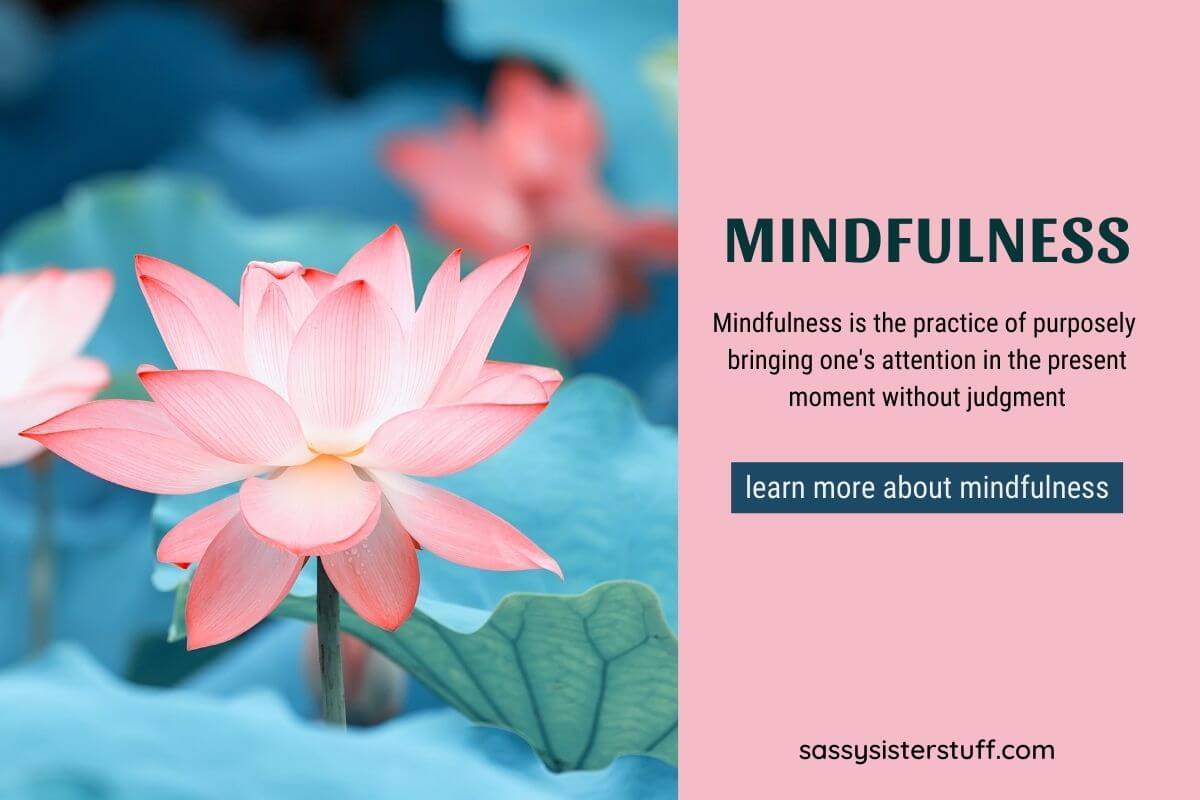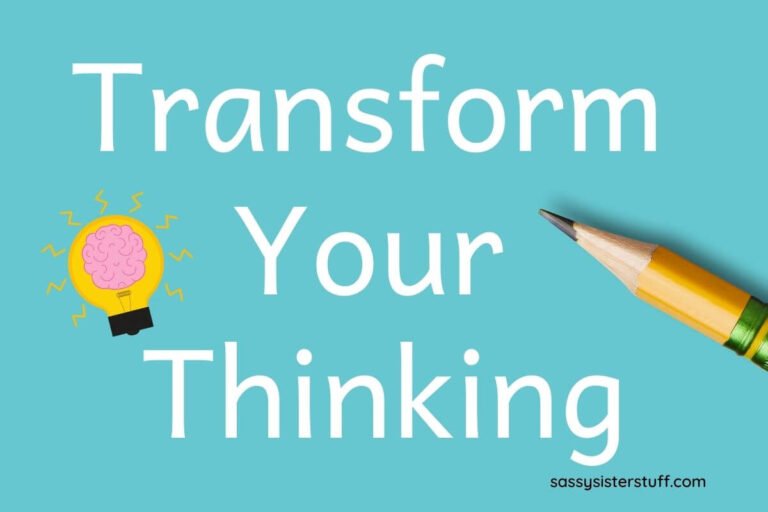12 Benefits of Mindfulness: Mind, Body, and Soul
There is no doubt that mindfulness helps you feel mentally and emotionally calmer. However, did you know a practice of mindfulness also supports a healthier and stronger body? In this article you will learn 12 benefits of mindfulness – mind, body, and soul – that support your overall health and wellness.
Let’s take a quick look at a list of some positive effects of mindfulness before we get started. Then we will also answer the question, “What is Mindfulness?”
Mindful behaviors help you:
- increase your willingness to try and accept new things
- lower chronic pain
- lower blood pressure
- improve neuroplasticity of your brain
- embrace a happier lifestyle
- develop a more peaceful mind, body, and soul
- enhance your ability to deal with stress and anxiety effectively
- strengthen your immune system
- improve interpersonal relationships
- foster self-awareness
Related Article: How to Bring More Cozy Into Your Life
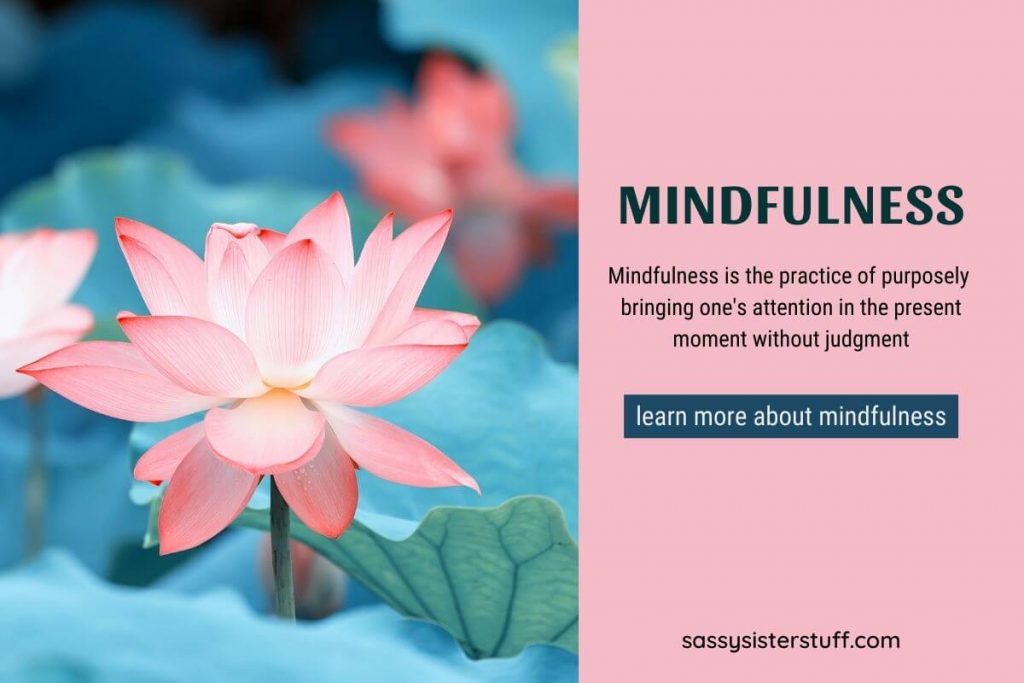
Related Article: 90 Mindfulness Journal Prompts to Improve Your Life
What is Mindfulness?
Mindfulness is a state of being consciously aware of what you’re doing, sensing, and feeling in the moment. It is a state of calmly acknowledging and accepting your feelings, thoughts, and physical being.
It helps you focus your attention on what you are doing in the moment and calmly responding to what is happening around you.
Mindfulness also includes the habit of being non-judgmental, accepting, and kind toward others.
“The ability to observe without evaluating is the highest form of intelligence.”
Jiddu Krishnamurti
It is the opposite of rushing and/or multi-tasking without thought to the details of what you are doing and what is happening around you.
Three words come to mind when I need to refocus on mindful behaviors: be present, slow down, and breathe.
Mindful.org is a great resource for learning more about mindfulness and I LOVE their definition of MINDFULNESS:
“Mindfulness is the basic human ability to be fully present, aware of where we are and what we’re doing, and not overly reactive or overwhelmed by what’s going on around us.“

Benefits of Mindfulness: Mind, Body, and Soul
Mindfulness is not something “extra” you need to do in life. It is a way of living – a way of behaving – a way of thinking. Additionally, a healthy mindset can be cultivated through practice if it does not come naturally to you. Let’s take a closer look at 12 reasons why you should practice mindfulness as part of your emotional self care practice:
1. Helps Reduce Stress
Research shows that mindfulness actually lowers stress hormones in your body. As a result, you are able to avoid the fight-or-flight mode when triggered.
Mindfulness helps you remain calm under pressure, be less self-critical, refrain from over-reacting, and see situations from the perspective of someone who is far less worked up.
“If you want to conquer the anxiety of life, live in the moment, live in the breath.”
Amit Ray
Stress reduction and calming the chaos in your life are significant benefits of mindfulness.
Related Article: Practical Tips for Finding Calm in the Chaos
2. Fights Disease and Illness
Mindfulness is found to reduce inflammation in your body that contributes to a variety of physical illnesses and diseases. It can even help reduce the symptoms of cancer and other serious illnesses. Research has shown that cancer patients who practice mindfulness even tend to have healthier cancer cells.
Many breast cancer patients firmly believe that mindfulness has helped them in their health journey. Some patients even believe that it works better than pharmaceutical interventions for bouts of depression.
Additionally, research suggests that people who naturally possess a more mindful disposition have been found to have less heart disease. Therefore, doctors encourage cardiovascular patients to practice mindful behaviors.
Related Article: Habits to Improve Mental Health, Sleep Habits, and Heart Health
Pin to Pinterest for Later
3. Reduces Symptoms of Common Ailments
Mindfulness has also been shown to reduce symptoms of common illnesses and ailments such as the common cold. Many people firmly believe mindfulness helps then feel better when they are sick.
Preliminary studies suggest that mindfulness interventions can even alleviate chronic pain and incessant aches in patients with chronic conditions or illnesses.
4. Keeps You Focused and More Productive
Mindfulness meditation can help train your mind to avoid distractions for longer periods of time. It helps you remember new things easier, and stay focused on the task at hand. Therefore, you become more productive.
Mindfulness meditation is just one strategy for learning mindful behaviors. It is a mental training practice that teaches you to slow down your racing or frantic thoughts; it’s a form of meditation that helps you learn to let go of negativity; and it helps you calm both your mind and body. Techniques can vary, but in general, mindfulness meditation involves deep breathing and full awareness of body and mind.
There are many benefits of mindfulness meditation. Similarly, adults can achieve many benefits from coloring — coloring has the same effect on the brain as meditation. It is no longer an activity just for children:) Check out these calming coloring pages and get yourself some cool gel pens or pencils and give it a try!
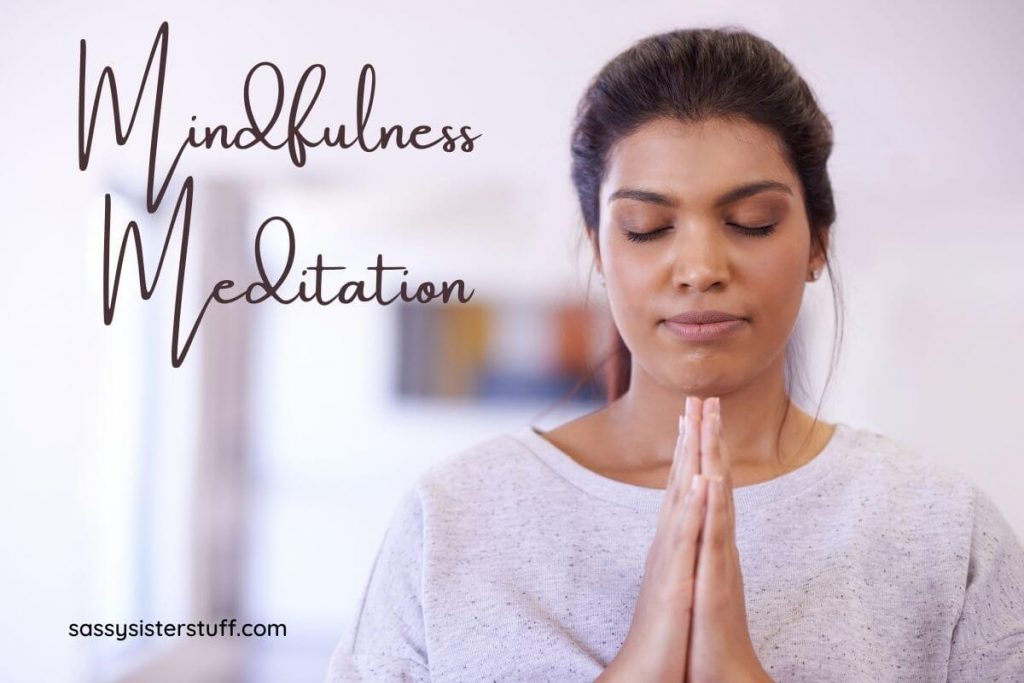
5. Reduces Bad Habits
Mindfulness meditation has been shown to reduce cravings for bad habits such as cigarettes, alcohol, and over-eating. Mindful eating is a common practice in many diet plans.
Judson Brewer, a psychiatrist and addiction expert, wrote an article called “A Simple Way to Break a Bad Habit” on mindful.org. She explains how you can use mindfulness to change the brain’s habit-forming process to build healthier habits that aren’t guided by cravings.
If you are trying to break a bad habit, you may want to check out her article!
6. Improves Interpersonal Relationships
Studies show that couples who practice mindful behaviors are more satisfied in their relationships. They tend to last longer and be happier.
Additionally, women find men who practice mindful behaviors are more attractive.
When you practice mindfulness, you create a situation where you are more tolerant and accepting of people and things around you. You are aware of the way you treat people and speak to people. You are more aware of your actions and responses. These mindful behaviors impact your interpersonal relationships in a positive manner.
Related Article: The Importance of Positive Social Interactions
7. Improves Overall Wellness
“Perhaps the biggest reason to engage in mindful behaviors is you’ll feel healthier, happier, and more focused.”
Unknown
Mindful behaviors tend to go hand-in-hand with practicing positivity. A positive outlook is linked to a longer life, better health, and improved well-being.
The Mayo Clinic reports that mindfulness lowers rates of depression and distress, helps develop greater resistance to common illnesses, promotes better heart health, and improved psychological and physical health.
If you are not naturally an optimistic person with a positive mindset, you can benefit from mindful behavior training focused on compassion and kindness. This boosts positive emotions and improves cardiovascular function.

8. Helps You Live With Intention
Mindful behaviors can help guide you to live with intention. Living with intention means living a better-balanced life that’s full of meaning and purpose.
Many people who practice mindful behaviors set an intention each morning that supports their wellness. Throughout the day, they remind themselves of the intention. Then at night, they reflect on how the mindful intention helped their well-being that day. This daily ritual becomes a habit that positively impacts the body, mind, and soul.
A daily intention can be something as simple as “I am going to SMILE more today” or “I am going to compliment everyone at work today.” It does not need to be something that takes extra time but it should be something that makes you feel happy.
Living with intention is beneficial as it can increase self-awareness and happiness in your own life.
9. Keeps You Grounded
“Feelings come and go like clouds in a windy sky. Conscious breathing is my anchor.”
Thich Nhat Hanh
The technique of mindful breathing helps your mind and body get and stay grounded. This is known as mental health grounding. Grounding exercises are a way for you to firmly anchor yourself in the present when you begin to feel overwhelmed or anxious.
Mindful breathing is just one technique for mental health grounding. Another popular technique for grounding is progressive muscle relaxation. And the 5-4-3-2-1 technique in the image below is yet another. These are three examples of mindfulness training.
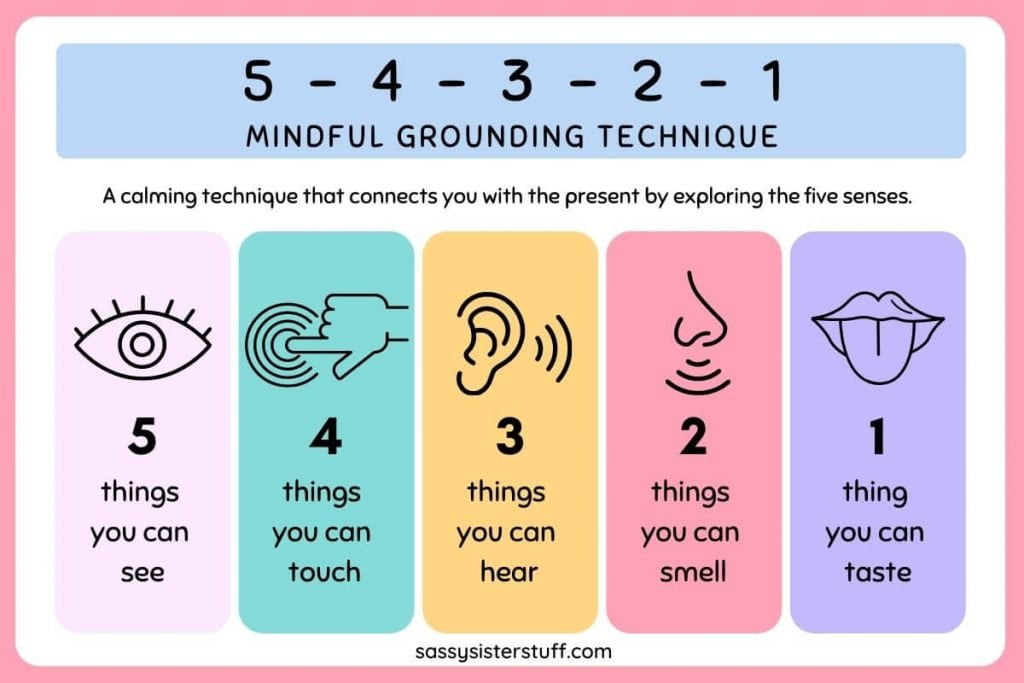
Let’s discuss mindful breathing for a moment. As you practice mindful breathing, you learn to notice the sensations in your body. You practice slow, even breathing – in and out. You feel the breath passing deep through your body. This kind of mindful behavior helps you release the thoughts that are creating your anxiety or stress. Progressive muscle relaxation works in a similar manner.
People can actually become accustomed to shallow breathing if they are not mindful of their breathing techniques. Unfortunately, shallow breathing can lead to panic attacks, cause dry mouth and fatigue, and aggravate respiratory problems. It is also a precursor to cardiovascular issues.
Slow, even breathing helps your body unwind and release the thoughts that cause anxiety and stress. Grounding helps you achieve a clearer vision that keeps your mind and body in a state of improved wellness.
As you facilitate your mindfulness practice, you will learn about many grounding techniques that help anchor you in the present.
10. Increases Happiness
“Be happy in the moment, that’s enough. Each moment is all we need, not more.”
Mother Teresa
Notice that the concept of happiness keeps coming up in the discussion of mindfulness. That’s because we all want to be happy, right? A regular habit of mindful living helps increase your state of happiness.
As stated in #8, a simple smile or compliment can create a feeling of happiness with very little effort. Even holding the door for someone can make you feel happy. But you have to be mindful of your behavior as you walk through the door if someone is behind you, right?
Have you ever tried riding your bike down the road with a smile on your face just because? Or driving to work in silence with a smile on your face just because? Try it. I can assure you that the very act of smiling mindfully will create happiness in your heart. (Yes, I do it all the time. I learned the strategy from the book Eat, Pray, Love by Elizabeth Gilbert.)
Related Articles: Intentional Ways to Improve Your Happiness and Achieving Happiness Isn’t as Hard as You Might Think
11. Helps You Make Better Choices
When you do mindful behaviors such as meditation, daily intentions, and deep breathing, you are training your brain to slow down and simplify your life. You are training your brain to stay focused and in the moment.
As a result, you will be able to make better choices when faced with conflict or decisions.
Mindfulness also helps with executive functioning – the cognitive control you need to concentrate, think, and control your emotional responses.

12. Improves Sleep Habits
Finally, we are going to end 12 Benefits of Mindfulness: Mind, Body, and Soul with the fact that being mindful helps improve your sleep habits. Mindfulness helps induce a relaxed state of mind that is conducive to falling asleep. As a result, at bedtime, your mind is ready to shut down and sleep.
Sleep is a critical component of your overall wellness. It doesn’t just heal your body; it heals your mind. A good night’s rest can change how you interact with the world by elevating your mood and improving your concentration.
Since mindfulness teaches you the ability to just be present in the moment, it holds powerful benefits for calming your mind in the evening and promoting a good night’s sleep.
Related Article: Bedtime Affirmations for Good Sleep
Final Thoughts: Benefits of Mindfulness
I’ve been learning about mindful behaviors for years because there are many benefits of mindfulness for students in the classroom. I would teach my special education students about how mindfulness can help them.
I would also conduct professional development on the benefits of mindfulness in the workplace. There is an incredible amount of research on mindfulness that supports how it helps people with their mental health and physical health in all environments.

Research very consistently answers the question why is mindfulness important. I hope I’ve touched upon some of those answers here in this article in a simple enough way that it makes sense to you.
But if you would like additional information, I suggest you read 23 Amazing Health Benefits of Mindfulness for Body and Brain by Positive Psychology. It is a very thorough article that I have found quite helpful!
For a more scientific article that explains how to start your own mindfulness practice, I suggest you read 28 Benefits of Mindfulness Backed by the Latest Scientific Research. This is another great article that offers extensive information.
I hope you have gained a clear understanding of the mindfulness definition and the benefits of mindfulness for your body, mind, and soul. I genuinely try to live my life more mindfully at all times and I think it has a positive impact on my overall wellness. Good luck!
Related Posts:
Love to ALL! ~ Susan
Benefits of Mindfulness: Mind, Body, and Soul – Are you practicing mindful behaviors to improve your overall wellness?
Share your thoughts in the comments:)

